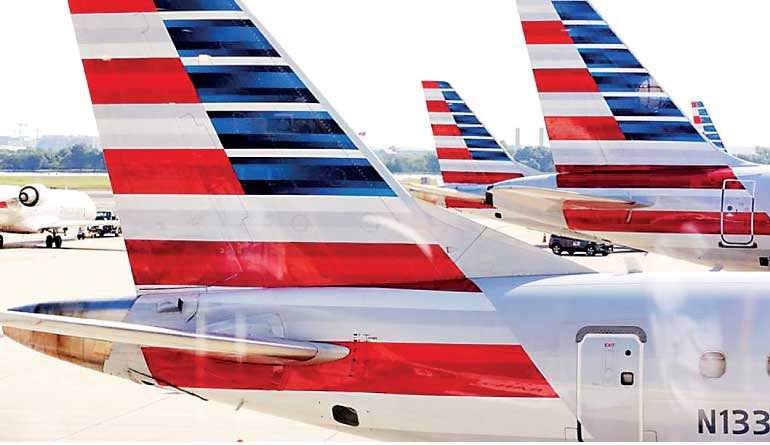Sunday Feb 15, 2026
Sunday Feb 15, 2026
Monday, 24 July 2017 00:01 - - {{hitsCtrl.values.hits}}

WASHINGTON (Reuters): Some 180 airlines worldwide that fly directly to US airports have complied with a first phase of enhanced security measures outlined in June and do not face any new restrictions, the US Department of Homeland Security said last week.
The US directives no longer include any in-cabin restrictions on large electronics including laptops, DHS spokesman David Lapan said. The government confirmed last week it had lifted such restrictions on Saudi Airlines flights from Riyadh after earlier dropping restrictions on Jeddah flights.
Enhanced security measures for all foreign flights arriving in the United States were unveiled on June 28 by US Homeland Security Secretary John Kelly. Officials said the measures were aimed at ending a limited in-cabin ban on laptops that had targeted nine airlines, and preventing an expansion of that ban to additional airports in Europe and elsewhere.
The US government revised its security directive, including requirements that must be met within 120 days. An airline official told Reuters last week that this gave airlines more flexibility and additional time to obtain explosive trace detection equipment. The requirements unveiled in June include enhanced passenger screening at foreign airports, increased security protocols around aircraft and in passenger areas and expanded screening by sniffer dogs, and take effect in stages. They affect 325,000 airline passengers on about 2,000 commercial flights arriving daily in the United States, on 180 airlines from 280 airports in 105 countries. Vaughn Jennings, a spokesman for Airlines for America, an industry trade group representing American Airlines Group Inc, United Continental Holdings Inc, Southwest Airlines Co and others, welcomed the new timeline. “The initial timeline for implementation was neither feasible nor realistic, the additional flexibility provided by DHS will ensure carriers remain compliant,” he said. The original directives should have been “subject to a greater degree of collaboration and coordination from DHS/TSA prior to being issued,” Jennings added, referring to the Transportation Security Administration. The revised directive provided the airlines with more flexibility in implementing the measures, Laplan said.
In March, the DHS imposed restrictions on passengers carrying large electronics such as laptops in cabins on nine airlines, most of which were Middle Eastern carriers, to address the potential threat of hidden explosives. For months, Kelly and other DHS officials said it was likely the laptop ban would be expanded.
European and US officials told Reuters that airlines had 21 days from June 28, or until July 19, to put in place increased explosive trace detection screening and 120 days to comply with other security measures, including enhanced screening of airline passengers.